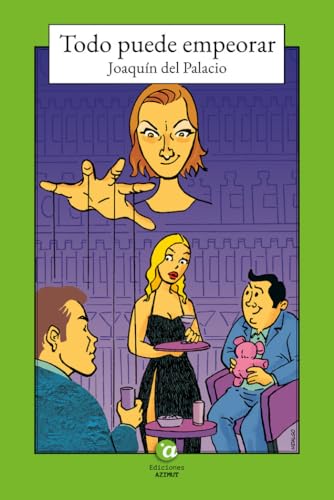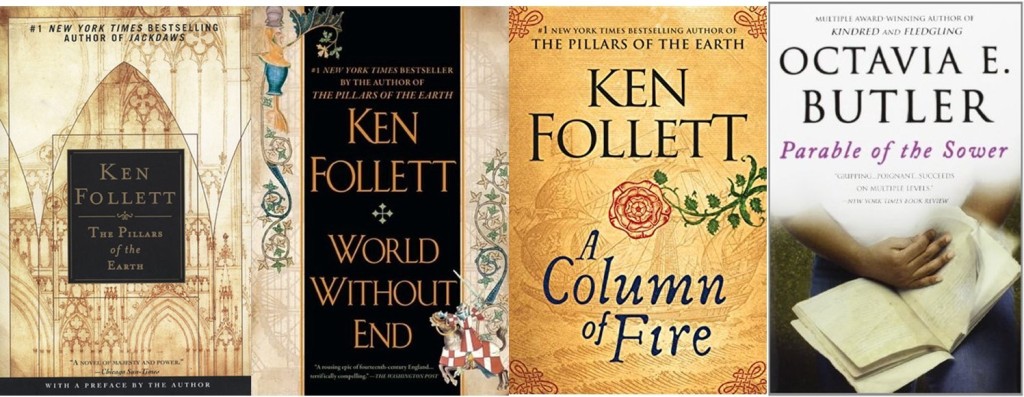
A week ago – based on other global realities – I started Kim Ghattas’ Black Wave: Saudi Arabia, Iran, and the Forty-Year Rivalry That Unraveled Culture, Religion, and Collective Memory in the Middle East. But sometimes the world changes, and sometimes it changes so quickly and so all of a sudden that you have no chance to adjust.
As you may know, I live in Madrid, Spain, and we are living in total lock-down. I could write (and still may) volumes about the Quarantined Life, but let me just say that as quickly as Covid-19 changed my world, I lost the ability to focus on the problems of Iran and Saudi Arabia regardless of how engaging Ghattas’ work was.
Then I was reminded of one of my favorite books from my late teens. When I was a senior in high school, now 30 years ago (!!!), I was a die hard soccer jock who paid little attention to school. One day I found myself injured, sidelined and with little to occupy my time. Cliché as it was, I turned to the existentialists: Jean-Paul Sartre, Albert Camus, Franz Kafka and Miguel de Unamuno. For a guy who never studied, I started getting to school early every morning. I’d park myself in front of my locker and start the day reading The Stranger or Nausea and not be able to put them down. In fact, a teacher kicked me out of class one day for reading a poetry book during Trigonometry. All these years later, I had almost completely forgotten that Camus’ The Plague was one of my favorites.
Until last week. I picked up the book, and it is the world I am currently living in:
The word “plague” had just been uttered for the first time. At this stage of the narrative, with Dr. Bernard Rieux standing at his window, the narrator may, perhaps, be allowed to justify the doctor’s uncertainty and surprise, since, with very slight differences, his reaction was the same as that of the great majority of our townsfolk. Everybody knows that pestilences have a way of recurring in the world; yet somehow we find it hard to believe in ones that crash down on our heads from a blue sky. There have been as many plagues as wars in history; yet always plagues and wars take people equally by surprise.
In fact, like our fellow citizens, Rieux was caught off his guard, and we should understand his hesitations in the light of this fact; and similarly understand how he was torn between conflicting fears and confidence. When war breaks out, people say, “It’s too stupid; it can’t last long.” But though a war may well be “too stupid,” that doesn’t prevent its lasting. Stupidity has a knack of getting its way; as we should see if we were not always so much wrapped up in ourselves.
In this respect, our townsfolk were like everybody else, wrapped up in themselves; in other words they were humanists: they disbelieved in pestilences.
A pestilence isn’t a thing made to man’s measure; therefore, we tell ourselves that pestilence is a mere bogy of the mind, a bad dream that will pass away. But it doesn’t always pass away and, from one bad dream to another, it is men who pass away, and the humanists first of all, because they haven’t taken their precautions.
Our townsfolk were not more to blame than others; they forgot to be modest, that was all, and thought that everything still was possible for them; which presupposed that pestilences were impossible. They went on doing business, arranged for journeys, and formed views. How should they have given a thought to anything like plague, which rules out any future, cancels journeys, silences the exchange of views. They fancied themselves free, and no one will ever be free as long as there are pestilences.
…
Nevertheless, many continued hoping that the epidemic would soon die out and they and their families would be spared. Thus they felt under no obligation to make any change in their habits as yet. Plague was for them an unwelcome visitant, bound to take its leave one day as unexpectedly as it had come. Alarmed, but far from desperate, they hadn’t yet reached the phase when plague would seem to them the very tissue of their existence; when they forgot the lives that until now it had been given to them lead. In short, they were waiting for the turn of events.
Two years ago when I visited Normandy where so many young Americans sacrificed so much, and I already had the feeling between Brexit and Trump trashing NATO we were taking for granted the long, unique arch of peace that had covered so much of the world since World War II. As Camus explains, no one expects war and no one expects a pestilence and when they come we are always left dumbfounded. This is where we are today.






 At the beginning of confinement back in March, one of my first thoughts was that lockdown was going to be a lot like Ramadan, just instead of not eating, we wouldn’t be able to go outside. One clear difference, though, was that with Ramadan at least you knew it would last no more than 30 days.
At the beginning of confinement back in March, one of my first thoughts was that lockdown was going to be a lot like Ramadan, just instead of not eating, we wouldn’t be able to go outside. One clear difference, though, was that with Ramadan at least you knew it would last no more than 30 days.

 This year I surprised myself by reading 29 books. As I started the year off with the VERY LONG biography of Grant, taking over one month to finish, I was sure I wouldn’t break the 20 book mark for the year. Nevertheless, I rallied. Few books were out of this world, but plenty were very good reads.
This year I surprised myself by reading 29 books. As I started the year off with the VERY LONG biography of Grant, taking over one month to finish, I was sure I wouldn’t break the 20 book mark for the year. Nevertheless, I rallied. Few books were out of this world, but plenty were very good reads.

